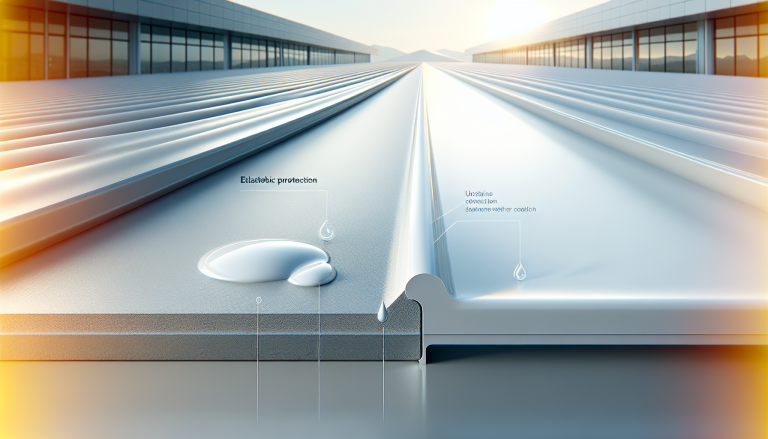Elastomeric Roof Coatings: A Comprehensive Guide to Sustainable Roofing Solutions
In the ever-evolving world of commercial roofing, elastomeric roof coatings have emerged as a game-changing technology that offers both performance and sustainability. As someone who has spent over 15 years navigating the complexities of the roofing industry, I’m excited to share insights that can help building owners and facility managers make informed decisions about their roofing investments.
Understanding Elastomeric Roof Coatings: The Basics
Elastomeric roof coatings are specialized liquid-applied membranes that transform existing roof surfaces into high-performance protective layers. Unlike traditional roofing solutions, these coatings provide exceptional flexibility, allowing them to expand and contract with temperature changes without compromising structural integrity.
Key characteristics of elastomeric roof coatings include:
– Exceptional elongation capabilities
– Superior waterproofing properties
– Remarkable durability
– Excellent reflective characteristics
– Seamless application
The Science Behind Elastomeric Technology
Modern elastomeric coatings are typically composed of advanced polymer technologies that create a robust, seamless membrane. These formulations often include acrylic, silicone, or polyurethane base materials, each offering unique performance characteristics.
“Elastomeric roof coatings represent the intersection of advanced materials science and practical building maintenance,” notes Dr. Robert Henderson, a leading materials engineer.
Economic and Environmental Benefits
The advantages of elastomeric roof coatings extend far beyond simple surface protection. By implementing these innovative solutions, businesses can realize significant economic and environmental benefits:
1. Energy Efficiency
Reflective elastomeric coatings can dramatically reduce roof surface temperatures, leading to:
– Decreased cooling costs
– Improved interior comfort
– Reduced urban heat island effect
2. Extended Roof Life
By providing a protective barrier, these coatings can:
– Prevent UV degradation
– Minimize moisture penetration

– Reduce thermal stress on roofing substrates
3. Sustainability Impact
Elastomeric roof coatings contribute to green building practices by:
– Reducing material waste
– Minimizing new roof installations
– Improving overall building energy performance
Application Techniques: Ensuring Optimal Performance
Successful elastomeric roof coating implementation requires meticulous preparation and professional application. Critical steps include:
Surface Preparation:
– Thorough cleaning
– Repairing existing roof damage
– Removing debris and contaminants
– Ensuring proper surface adhesion
Application Considerations:
– Appropriate environmental conditions
– Correct material selection
– Professional application techniques
– Multiple coating layers for maximum protection
Maintenance and Long-Term Care
While elastomeric roof coatings are remarkably durable, periodic maintenance ensures continued performance. Recommended practices include:
– Annual professional inspections
– Prompt repair of any minor damages
– Regular cleaning
– Recoating every 10-15 years
Industry Trends and Future Developments
The elastomeric roof coating market continues to evolve, with emerging trends focusing on:
– Enhanced eco-friendly formulations
– Improved thermal performance
– Smart coating technologies
– Integration with renewable energy systems
Technological advancements are making these coatings increasingly sophisticated, with nanotechnology and advanced polymer science driving innovation.
Choosing the Right Elastomeric Roof Coating
Selecting an appropriate roof coating requires careful consideration of:
– Existing roof substrate
– Local climate conditions
– Building usage
– Performance requirements
– Budget constraints
Consulting with roofing professionals can help determine the most suitable elastomeric coating solution for specific needs.
Cost-Benefit Analysis
While initial installation costs might seem higher compared to traditional roofing methods, elastomeric roof coatings offer substantial long-term savings through:
– Reduced maintenance expenses
– Extended roof lifespan
– Energy efficiency improvements
– Minimized environmental impact
Conclusion: A Smart Investment in Building Performance
Elastomeric roof coatings represent a sophisticated approach to modern building maintenance. By combining advanced materials science with practical application, these innovative solutions offer building owners a compelling option for protecting and enhancing their infrastructure.
As the roofing industry continues to prioritize sustainability, performance, and efficiency, elastomeric roof coatings stand at the forefront of technological innovation.
For facility managers and building owners seeking comprehensive roofing solutions, exploring elastomeric roof coating technologies represents a strategic investment in long-term building performance and environmental responsibility.